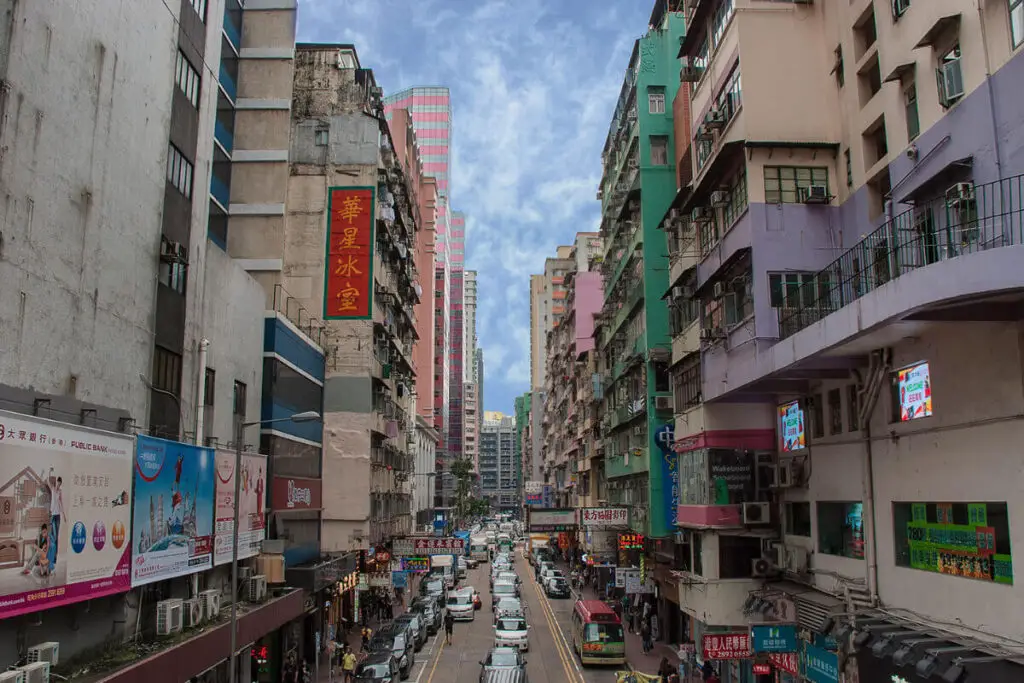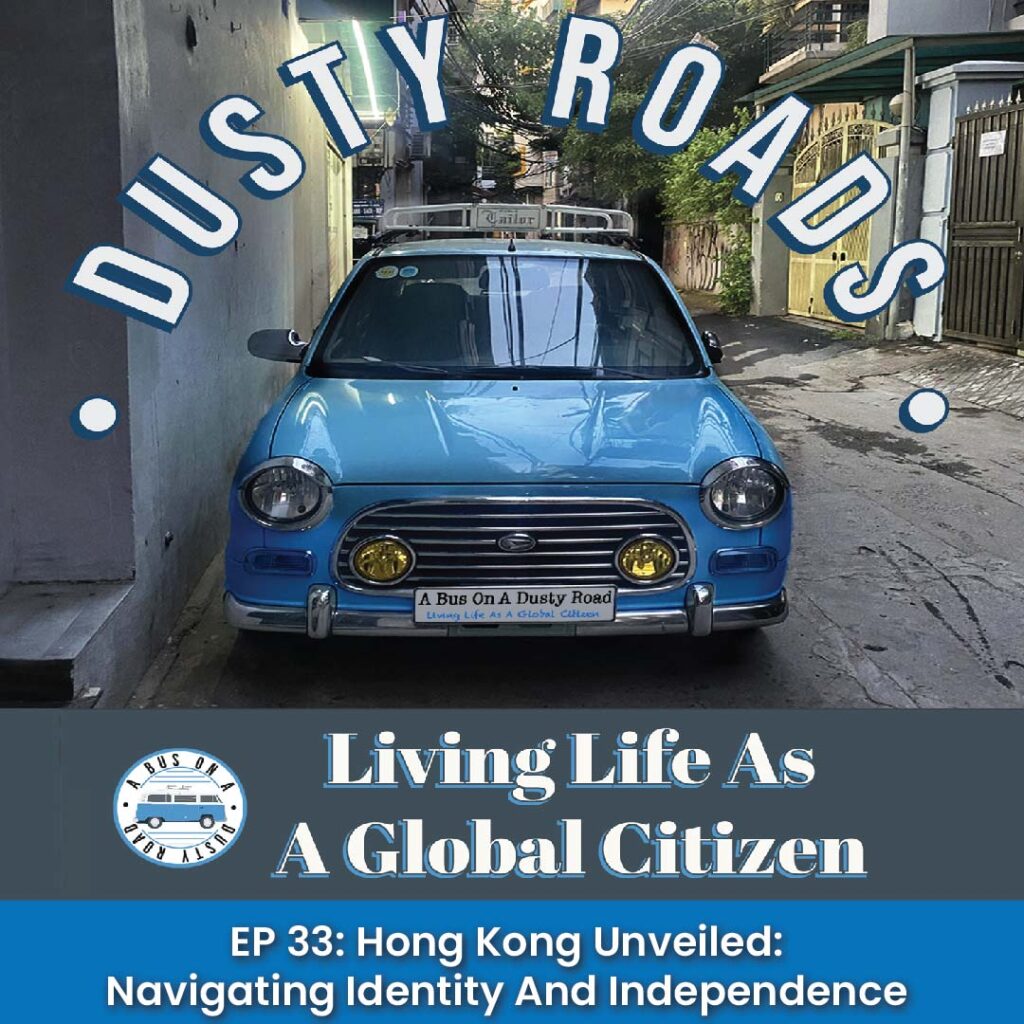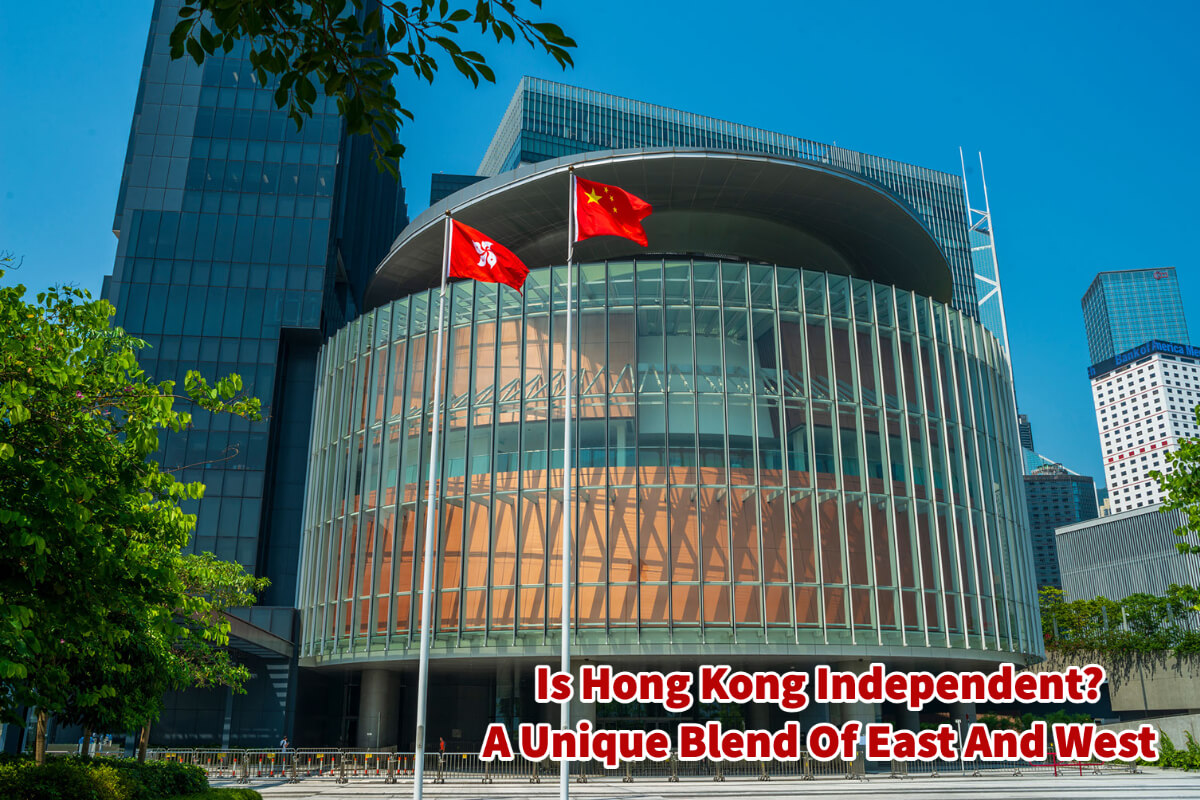Having spent several years living and working in Hong Kong, I’ve witnessed firsthand the dynamic fusion of Eastern and Western cultures that defines this remarkable city. As a gateway between the East and the West, Hong Kong offers a vibrant mix of traditions, cuisines, architecture, and languages, making it an exhilarating place to live and work.
Hong Kong is not independent and has been under Chinese rule since 1997. Before 1997 it was a British Colony. Even though Hong Kong is part of China, it is considered one country with China but with two different systems. To go from Hong Kong to China, you must still pass both Hong Kong and Chinese immigration and customs.
Table of Contents
Is Hong Kong Independent?
Hong Kong, the bustling metropolis with its towering skyscrapers, lush parks, and iconic Victoria Harbour, has a complex history intertwined with global empires and the ebb and flow of global trade.
While many recognize Hong Kong for its distinctive East-meets-West culture, its political status is a topic of ongoing debate and intrigue. To fully understand Hong Kong’s current position, we must delve into its history and unique relationship with Britain and China.

Hong Kong Under British Rule
To trace the roots of Hong Kong’s unique status, we must go back to the 19th century, during a tumultuous period marked by the First Opium War. The conflict arose due to trade imbalances and disagreements between the Qing Dynasty and the British Empire, primarily over the opium trade.
As a result of the war, the Treaty of Nanking was signed in 1842, which led to the Qing Dynasty formally ceding Hong Kong Island to the British Empire.
Following this treaty and subsequent agreements like the Convention of Peking in 1860 and the Convention for the Extension of Hong Kong Territory in 1898, the regions of Kowloon and the New Territories were also leased to Britain. Thus, what began as a small outpost turned into a thriving British colony over a few decades.
Under British rule, Hong Kong developed rapidly. Its strategic location as a port and the influx of local and foreign entrepreneurs played a part in transforming it into a significant global trading hub. Western legal and administrative systems were implemented, laying the foundations for Hong Kong’s role as an international financial center.
For over 150 years, until July 1997, Hong Kong was managed by a British colonial administration. Yet, as the end of the 20th century approached, the fate of Hong Kong became an ever-pressing issue.

Hong Kong’s Return To China: The Handover of 1997
I was in Hong Kong in 1997 during the handover celebrations. We went to the downtown part of Hong Kong to see the celebrations, and I remember very clearly when Hong Kong was returned to Chinese rule.
The year 1997 marked a monumental shift in Hong Kong’s history. This was the year when the 99-year lease on the New Territories, as agreed in the Convention for the Extension of Hong Kong Territory, was due to expire.
However, the practicality of splitting Hong Kong – by returning just the New Territories to China and retaining the rest under British control – was deemed unfeasible. Hence, negotiations between the United Kingdom and China led to the entire territory of Hong Kong being returned to China.
When the handover occurred, many people worried that war could break out or that China or Chinese troops would be on all the streets. But none of that ever happened, and many years after the handover took place in Hong Kong, I never saw a Chinese troop anywhere in Hong Kong.
The main changes we saw were that the Queen of England’s photos were all taken down from all government buildings. The stamps changed in the post office from Hong Kong British stamps to Hong Kong Stamps, and the mailboxes were painted purple instead of red.
But the return wasn’t as straightforward as it might sound. Given the vast differences between the systems of governance, economy, and judiciary in communist China and capitalist Hong Kong, there were concerns about the future of Hong Kong. “One Country, Two Systems” was introduced to address these concerns.
Under this principle, while Hong Kong would be a part of China, it would retain its capitalist economy, legal system, and certain rights not seen in mainland China for 50 years after the handover. Officially termed the Special Administrative Region (SAR) of China, this status was designed to preserve Hong Kong’s unique way of life and its role as a global financial hub.

In recent years there have been some issues in Hong Kong with demonstrations and protests against some Chinese policies many Hong Kong people may not like.
But despite this, at least to me, Hong Kong still feels very much like the Hong Kong I knew before and after 1997.
A Unique Relationship Between Hong Kong And China
Hong Kong’s relationship with mainland China, post-1997, has been distinctive. Despite being part of the same country, one must pass through immigration when traveling between the two regions. It’s akin to crossing an international border.
Moreover, Chinese citizens do not automatically have the right to live, work, or even travel to Hong Kong. They must apply for permits and visas, similar to entering a foreign country. This is a stark reflection of the ‘two systems’ at play.
So, is Hong Kong independent? From a sovereign perspective, the answer is no. Hong Kong is indisputably a part of China. However, when it comes to its systems of governance, economy, and judiciary, Hong Kong has, at least for a stipulated period, retained a level of autonomy that makes it distinct from the rest of China.
Over the years, there have been concerns about the erosion of the “One Country, Two Systems” principle, with fears that Hong Kong’s freedoms are threatened. The situation remains fluid, and the world watches closely to see how the relationship between Hong Kong and mainland China evolves.

For now, though, Hong Kong remains a unique blend of East and West, a testament to its rich history and multifaceted identity.
Listen To Our Podcast About Hong Kong Unveiled: Navigating Identity And Independence below or by clicking here.

At A Bus On A Dusty Road, we talk about everything about travel, life, sailing, and ex-pat living. We are all about “Living Life As A Global Citizen.” We explore social, cultural, and economic issues and travel.
We would love to have you be part of our community. Sign up for our newsletter to keep up-to-date by clicking here. If you have any questions, you can contact me, Anita, by clicking here.
Listen to our Podcast called Dusty Roads. You can find it on all major podcast platforms. Try out listening to one of our podcasts by clicking here.
Subscribe to our A Bus On A Dusty Road YouTube Channel filled with great videos and information by clicking here.
Related Questions
What Is The Official Language Of Hong Kong?
The official language of Hong Kong is Chinese and English. The residents of Hong Kong are native Cantonese Chinese speakers, so the official language is Cantonese Chinese. Many in Hong Kong can also speak Mandarin Chinese; many local Hong Kong residents prefer to speak Cantonese Chinese or English.
By clicking here, you can discover What Is The Official Language Of Hong Kong?
How Similar Are The Chinese And Vietnamese Languages?
Both Vietnamese and Chinese are Asian languages though they come from different language families. Vietnamese and Chinese are both tonal languages and have similar sentence structures. They are monosyllabic languages, meaning that one word has one syllable and several dialects are spoken.
By clicking here, you can discover How Similar Are The Chinese And Vietnamese Languages?.
10 Reasons You Can Live In Hong Kong And Only Speak English
You can live in Hong Kong and speak only English. Many Hong Kong people speak English. Hong Kong is a former British Colony, so English is one of the official languages. In Hong Kong, the police, courts, restaurants, banks, and shops, people will usually speak English; many schools are English-speaking.
By clicking here, you can discover 10 Reasons You Can Live In Hong Kong And Only Speak English.


